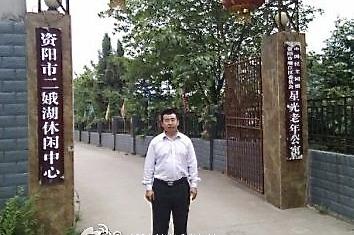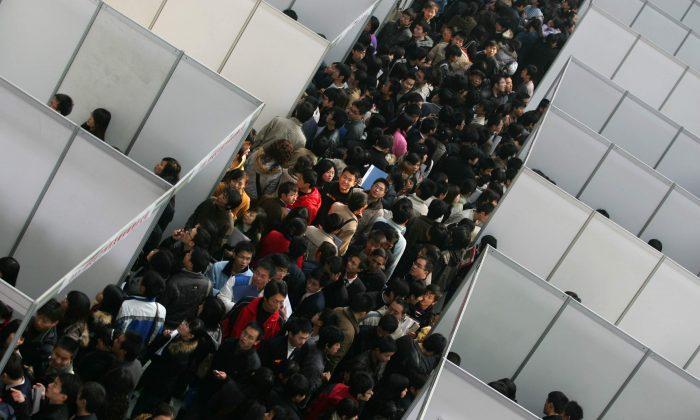Recent claims from Chinese officialdom, that with an estimated 9 percent GDP growth in 2010 China is the world’s second largest economy, have inspired a pointed critique by a group of dissenting economists. They call attention to the damage caused by Beijing’s pursuit of high growth regardless of its costs, and argue that the figures are primarily a result of manipulation by the regime.
Yi Gang, head of the state Administration of Foreign Exchange and deputy governor of the People’s Bank of China, said, in the same July 30 interview in which he revealed the GDP growth statistics, that the GDP “growth quality” needs to be improved.
Chinese economist Cheng Xiaonong says that China’s GDP has been beefed up by unscrupulous bank loans and overspending on public works, at all administrative levels.
“In another word, if the government stops tossing bank loans to blow up the valueless GDP growth, China’s economic growth will fall dramatically, and the entire picture would not be the same,” Cheng Xiaonong told New Tang Dynasty Television, a Chinese language broadcaster. Cheng currently serves as the chief editor of quarterly journal Modern China Studies and was adviser to China’s former Premier Zhao Ziyang.
Jason Ma, New Tang Dynasty TV’s economic commentator says that China’s high GDP growth reflects manipulation from the top rather than improved national wealth and living standards.
He points out that among the major GDP components, fixed asset and gross investment have been major drivers of China’s GDP growth, while the proportion of private spending remains very low.
In China, GDP is more than just an economic indicator—and is often a propaganda tool vigorously used to improve the Communist Party’s image both abroad and internally. At the central level, high GDP growth, especially during the global economic recession, was widely propagandized to improve Party’s image and allay intensifying social conflicts within the country. Local administrations were required to focus on meeting the target GDP, and the local officials’ performances were evaluated largely by the GDP of that region.
The pressure of pushing up the GDP curve shows on Chinese society in many ways. The local authorities often resort to selling lands to real estate developers for quick income. In 2009, land sale revenue accounted for 4.4 percent of the GDP, according to official statistics. In certain cities, up to 60 percentage of municipal income resulted from land sale.
This translates to soaring land and housing prices, which most Chinese cannot meet with a lifetime’s income; the GDP growth statistics are realized at the cost of the purchasing power of the Chinese people.
A notorious byproduct of aggressive land selling is the forced evictions, which involve physical assaults on and illegal detention of residents who refuse to move; and reports of incidents in which the residents committed suicide in protest are many.
The greed for quick production growth contributed in no small part to a complete disregard of the environmental impact involved, by both the industry and the Party. According to a 2007 article of Outlook Weekly published by Xinhua News Agency, the regime’s mouthpiece media, 70 percent of China’s water bodies, which includes 95 percent of the waters that flow past urban areas, are severely polluted; 400 million city dwellers have no fresh air to breath, and a third of the country’s territory suffers from acid rains. According to a World Bank survey, 16 of the world’s 20 most polluted cities are in China.
Another result of high GDP pressure is a prevailing falsification of economic statistics. Beijing itself has had to admit to the poor credibility of the numbers reported by local administrations. In January, the National Bureau of Statistics (NBS) announced a plan to unify the nation’s GDP calculation in order to prevent the local authorities from “cooking their economic figures,” according to the state media.
Vanity GDP Hurts China’s Living Standard
In China, GDP is more than just an economic indicator - and is often a propaganda tool vigorously used to improve the Party’s image.
By Michelle Yu
8/4/2010
Updated: 8/10/2010



